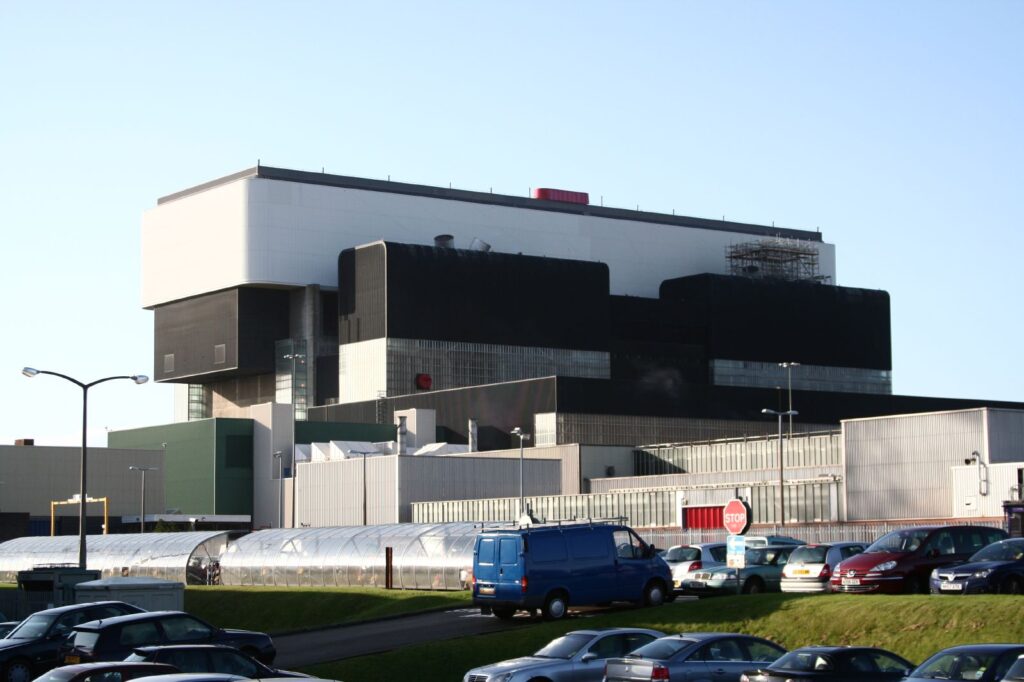DOUGLAS, 1 December 2020 – A leaked Isle of Man Government document to be discussed at today’s Citizen’s Forum on Climate Change canvasses the prospect of “nuclear power as seen in the UK” for the Isle of Man. Further, despite the document acknowledging that “many people cannot currently afford to heat their homes properly,” it suggests that Manx people “reduce the temperature that their home is heated at and perhaps wear an extra jumper instead.”
Michael Josem, the Chair of Liberal Vannin, said:
“Suggesting that “nuclear power as seen in the UK” could form part of the Island’s carbon neutral future is absurd and the Isle of Man Government must immediately rule out UK-style nuclear power on the Isle of Man.”
“We need realistic solutions to protect our environment, solutions that uphold the principles of a fair transition, which means supporting people who will be most impacted by proposals to tackle climate change. “Given this principle is at the heart of the Governments proposed climate change bill its insensitive at best for the Isle of Man Government to suggest Manx people already struggling with fuel poverty to merely wear an extra jumper.”
“If this poorly considered document is indicative of the way government is driving discussions in its citizen forum they need an immediate change of approach”
The document, entitled “Background reading for Citizen’s Forum Attendees” was distributed to members of the Citizens’ Forum on Climate Change, under the official Isle of Man Government coat of arms. The undated document says that today’s climate forum will be discussing “the changes that are needed to the use of heating, hot water and electricity in the home to reach net-zero greenhouse gas emissions.”
The leaked Isle of Man Government document credits “Climate Change Citizen’s Assembly Resources” (sic) and their “In the home” session for various parts. However, the underlying Climate Assembly UK document includes the following paragraph:
Electricity should be produced through zero-carbon means (renewable energy or nuclear power) not through burning coal and gas. Some households may be able to generate their own renewable electricity, using solar panels, for example. (Note that we are not addressing the question of solar panels in the ‘In the home’ theme. This will be looked at in the ‘where our energy comes from’ session in weekend four.[1])
(Their emphasis)
This paragraph was then copied and edited by the Isle of Man Government to read:
Electricity should be produced through zero-carbon means (renewable energy or nuclear power as seen in the UK) not through burning coal, oil and gas. Some households may be able to generate their own renewable electricity, using solar panels, for example.[2]
(My emphasis)
“The deliberate editing of this paragraph to specifically suggest nuclear power “as seen in the UK” shows that this was not just a copy and paste job from elsewhere,” said Josem. “Climate change requires serious solutions and serious consideration. The Isle of Man Government must immediately clarify that UK-style nuclear power plants are not part of the Island’s net zero future.”
ENDS
Contact: Michael Josem, Chair, Liberal Vannin Party
Phone: +44 (0)7624 488557
Email: michael@michaeljosem.com
Appendix: Extract from Isle of Man Government Document:
Background reading for Citizen’s Forum Attendees
The Built Space – 1st December 2020
Homes will need to change in several ways if the Island is to reach net zero greenhouse gas emissions by 2050:
- The use of fossil fuels (gas, oil and coal) for heating, hot water and cooking needs to be phased out. It needs to be replaced with energy-efficient, zero-carbon alternatives. These could include efficient electric cookers, and heating systems that use heat pumps powered by electricity or eventually hydrogen.
- Homes need to be insulated to make them as ‘energy efficient’ as possible, so that they are easier to heat. This can be done through draft proofing and adding loft insulation, insulating walls, and installing high-efficiency glazing. New homes need to be built to very high standards of energy efficiency. Ventilation also needs to be considered properly to reduce heat losses, whilst maintaining good internal air quality.
- Appliances in the home, such as TVs, computers, washing machines, dishwashers, fridges and other equipment, also need to be more efficient, so they use less electricity.
- Some equipment can be timed to operate when there is a large amount of electricity available, for example at night. Fridges, washing machines, and some types of heating could be adjusted in this way.
- People can make changes to the way they live in their homes, including turning lights and appliances off. They can also reduce the temperature that their home is heated at and perhaps wear an extra jumper instead.
- Electricity should be produced through zero-carbon means (renewable energy or nuclear power as seen in the UK) not through burning coal, oil and gas. Some households may be able to generate their own renewable electricity, using solar panels, for example.
Taking these steps brings benefits to householders beyond reducing emissions. Homes that are better insulated will be cheaper to heat and typically more comfortable. Many people cannot currently afford to heat their homes properly and would benefit from better insulation.
[1] Climate Assembly UK, In the home, Written briefing from unidentified Expert Leads, p.1, retrieved from https://www.climateassembly.uk/documents/68/in_the_home_FINAL.pdf on 30 November 2020
[2] Isle of Man Government, Background reading for Citizen’s Forum Attendees – The Built Space – 1st December 2020, Climate Action Isle of Man 2050, p.2
Header image: Heysham nuclear power plant by flickr user ‘maol’, used under Creative Commons license (CC BY-NC-SA 2.0).

